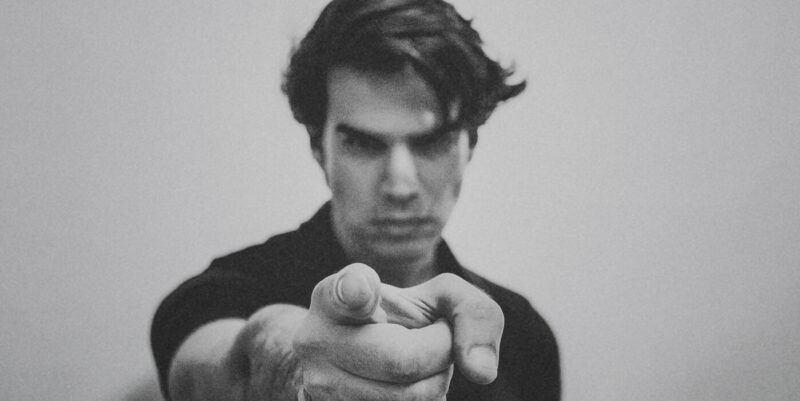Most people struggle with procrastination more than they should because of a simple confusion…
They think procrastination is a bad thing—a sign that they’re lazy, undisciplined, or stupid.
But what if you reframed your procrastination as a message from your brain about an unmet need? What if procrastination was your brain’s way of telling you that you need something in order to work better?
Specifically, there are a couple core needs that we all have and that make doing good work constantly much easier and more satisfying:
- The need for novelty
- The need for growth
In the rest of this article, I’ll give you a couple quick tips for dealing with procrastination in a healthier, more productive way by looking out for the hidden need inside your urge to procrastinate.
1. Work in stranger places
We’ve all heard the phrase “variety is the spice of life.”
The reason this resonates so much is because we all have a strong psychological need for novelty or excitement in our lives, including our work lives. Because no matter how much you are a “creature of habit” or love your routines, some amount of variety and novelty is important for just about everyone.
And it’s important for at least two reasons:
- Variety is enjoyable. Good stories have plot twists because that novelty keeps us interested and emotionally invested—on the edge of our seats, so to speak.
- Variety makes us more productive. We’re actually more productive when our work involves some variety and novelty from time to time. Too little variety makes us bored and unable to focus. Too much variety makes us overwhelmed and unable to focus. But the right amount of variety leads to optimal focus.
But variety in your work doesn’t have to mean variety in the content of your work. You can also satisfy your need for variety by changing up the context or environment in which you do your work.
Of course, this won’t completely fix things if you have too little content variety in your work. But in a pinch, dramatically changing up the environment in which you do your work very often breaks you out of the procrastination cycle and helps you focus.
So the next time you’re struggling with procrastination, think about a strange or unusual place you could do some work…
- Move from your office to a conference room for an afternoon.
- Instead of taking a call in your office, go for a walk around the neighborhood and do it.
- Try working from a coffee shop or library for an hour or two.
- One of my favorites is to work at the park a few blocks away from my office. I’ll grab my laptop or phone, walk to the park, find a nice bench or table, and get some work done surrounded by grass, trees, and squirrels.
Obviously, you can’t always change your environment. And some work demands very specific contexts. But more often than you’d think, you can do at least some work in a dramatically different environment.
And if you do, I think you’ll find that the urge to procrastinate often disappears when you do because you’ve satisfied your brain’s need for novelty.
2. Take credit for smaller units of progress
One of the unique challenges of knowledge work is that it can be difficult to see—and therefore feel—like we’re making progress in our work.
For example:
- You spent 90 minutes in a grueling team meeting.
- It probably was productive along some dimensions — some people have more clarity about what they need to work on, you got some good advice about a problem you were stuck on, etc.
- But even though you know intellectually that your meeting was a form of work, it often doesn’t feel that way.
- And when you consistently don’t feel like you’re making progress, it’s much easier to lose motivation, get distracted, and eventually start procrastinating.
- So after a morning of meetings, you sit down to draft a new proposal but keep procrastinating on it because your motivation is low—in part because of a lack of felt progress throughout the day.
To keep your motivation tank full and your procrastination urges minimal, create a system for tracking small units of progress.
Here are two little techniques I use to do this…
1. Keep a to-done list
A to-done list is just a sheet of paper you keep on your desk and every time to accomplish anything—even something super tiny like responding to an old email—you write it down on the paper.
Each new to-done item adds a little motivation to your tank. And as the list grows over the course of the day, your ability to stay focused and avoid procrastination stays strong because you’re forcing yourself to feel all the progress you’re making that you normally wouldn’t acknowledge.
2. Break down your to-dos into smaller parts
Let’s say your morning to-do list looks something like this:
- Finish new proposal
- Meet with Jenn re: Anderson case
- Work out
- Organize office
- Prep for strategy session with Naomi and Eric
The trick is to see that each of these to-do items is really a collection of much smaller tasks. And if you spell those out and treat each one as its own task, checking them off will give you a greater sense of progress, which will lead to more motivation, which will minimize your odds of procrastinating.
So, a new version of that first to-do list item might look like this:
- Finish new proposal
- Gather supporting docs for proposal
- Find email from Ben re: conclusion copy
- Draft section 3
- Draft conclusion
- Proof intro
- Proof section 1
- Proof section 2
- Proof section 3
- Proof conclusion
- Send proofed doc to Dennis for approval
You’re doing the same amount of work. You’re just allowing yourself to feel good about how much you’re actually doing.
More Articles About Productivity, Procrastination, and Motivation
If you enjoyed this article, you might enjoy these as well:





7 Comments
Add YoursNick, you’re amazing. And awesome. Thanks for a different perspective!
You’re very welcome, Mohammed!
This is fascinating, and so helpful! I’m going to incorporate these ideas on procrastination into my flute practice (practice in different locations, and keep a to-done list). Thanks, Nick!
You bet, Jeanie!
This WORKS! I tried it on for size since I started this morning and I feel inspired. Thank you for sharing Nick.
Awesome! Good for you for trying it right away 🙂
yes